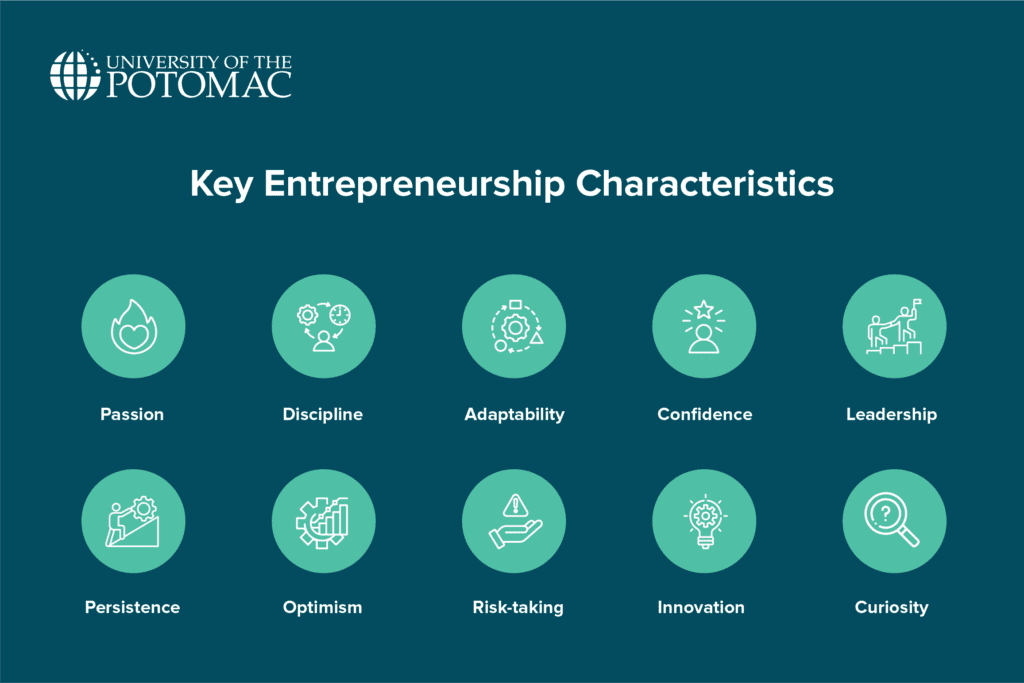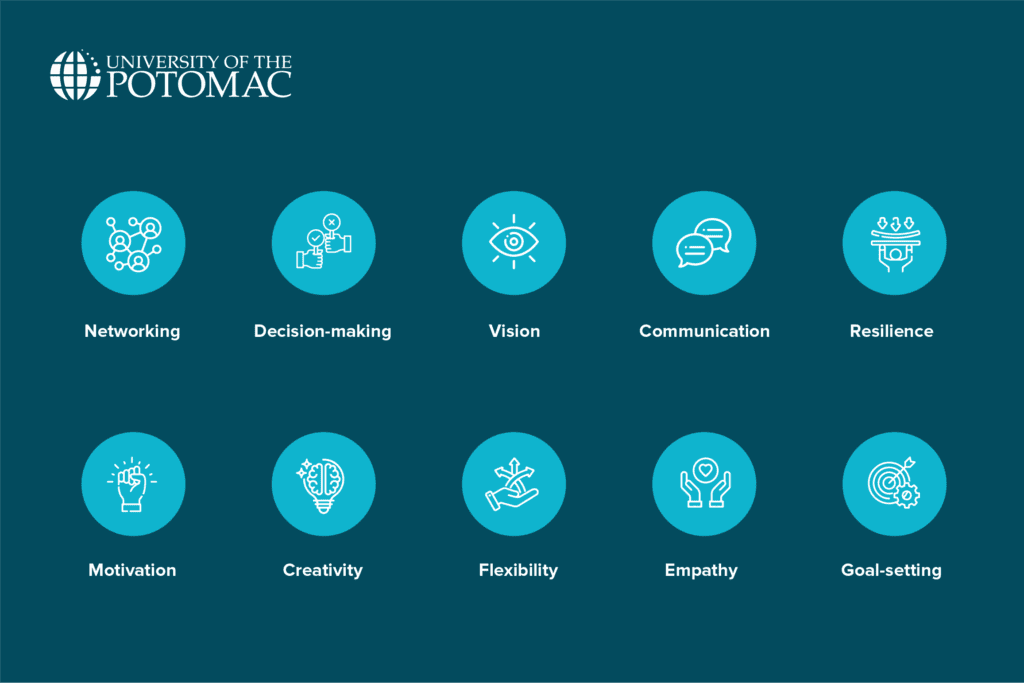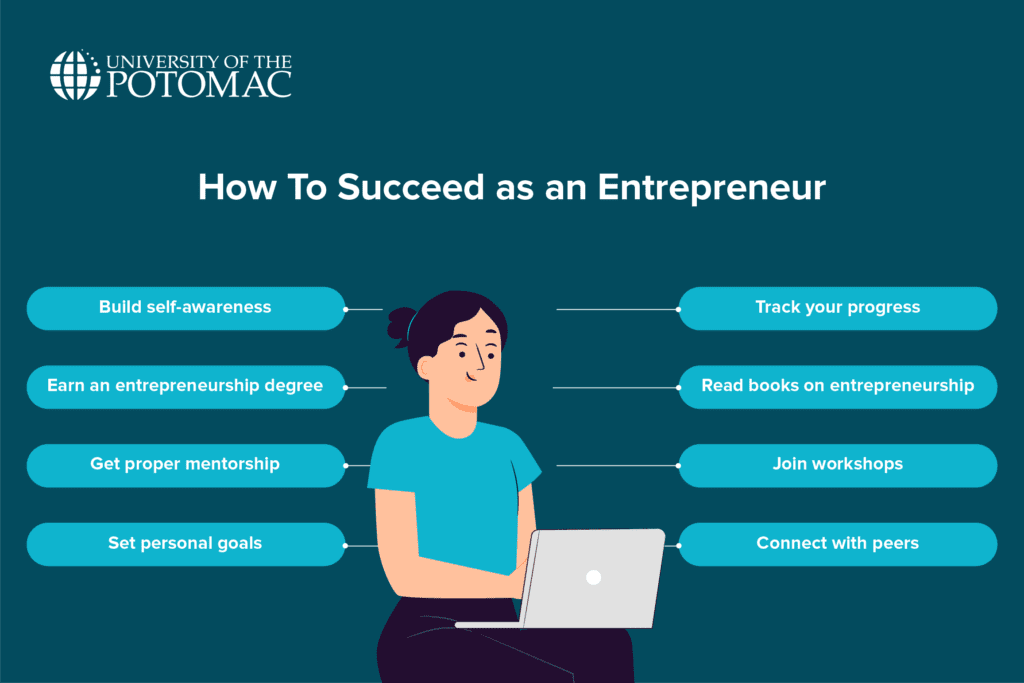Key Takeaways
- Developing core entrepreneurial traits, such as resilience, creativity, and leadership, is essential for business success and can be nurtured over time.
- Consistent learning through education, mentorship, and real-world experience helps entrepreneurs grow and adapt in a competitive market.
- Networking and surrounding yourself with other motivated entrepreneurs provide valuable support and feedback that can fuel growth and innovation.
Being an entrepreneur today means more than just launching a business; it is about solving real problems, spotting hidden opportunities, and staying committed through uncertainty. The path is exciting, unpredictable, and often demanding. In such a fast-moving environment, having the right mindset can be just as important as having the right idea.
That is where the personal traits of successful founders make all the difference. These core characteristics of an entrepreneur shape how they respond to challenges, lead their teams, and keep momentum even when things get tough.
Key Characteristics of an Entrepreneur
This list highlights key traits of an entrepreneur that often appear in those who develop and expand successful ventures. These traits help them handle challenges, lead with confidence, and think creatively to stay ahead.

1. Passion
Passion is that strong inner drive that keeps entrepreneurs going even when things get tough. It’s what gets them excited about their business every day. Passionate entrepreneurs are more likely to persevere through tough times and continuously improve their products or services.
Studies show that passionate business owners are more likely to grow their companies and keep going when others give up. This kind of energy helps connect with customers and motivates the whole team.
2. Discipline
Discipline means sticking to a routine, staying organized, and finishing what you start. In the startup world, things can get messy, but disciplined entrepreneurs stay focused. They manage their time well and keep their teams on track.
Eric Ries talks about this in The Lean Startup, saying discipline helps you focus on what matters, test your ideas properly, and avoid wasting time or money. Disciplined entrepreneurs follow through on their plans, build better habits, and stay on track even during chaos.
3. Adaptability
Adaptability is your ability to change direction when things aren’t working. It means being flexible with your ideas and always ready to learn. Startups often need to shift fast, and adaptable founders are the ones who survive.
Businesses that adapt quickly are more likely to bounce back from unexpected challenges. Think of it like steering a ship through changing weather—you need to stay alert and respond fast to stay on course.
4. Confidence
Confidence means trusting yourself to make decisions and believing in your ideas. It helps you present yourself well to investors, customers, and your team. When you’re confident, others are more likely to believe in you, too. According to research, confident entrepreneurs stick with their goals longer; as a result, confidence is linked with higher chances of success. You don’t need to have all the answers; you just need to believe you can find them and move forward.
5. Leadership
Leadership is about guiding others, making smart choices, and inspiring your team to believe in the vision. Good leaders know how to bring out the best in people and help them stay focused.
More importantly, researchers have established a connection between entrepreneurial leadership and entrepreneurial success, showing just how important having this skill is for leaders. A great leader listens, makes clear decisions, and builds a culture that motivates people to do their best work.
6. Persistence
Persistence means not giving up, even when things get hard. Every entrepreneur faces problems, but the ones who keep trying are the ones who win. Psychologist Angela Duckworth calls this “grit,” the power of sticking with something long-term. Many successful businesses failed before they became well-known. Persistent founders don’t quit after a ‘no.’ Instead, they learn, try again, and keep improving until they get a ‘yes.’
7. Optimism
With up to 90% of startups failing to take off, being an optimistic entrepreneur is no easy feat. Optimism helps you stay positive when things don’t go as planned. It’s the belief that things will work out, even if they’re tough right now.
Optimism, however, isn’t pretending things are perfect; it’s knowing that even bad days don’t last forever. That hopeful mindset helps you lead with energy and make smart moves instead of getting stuck in fear.
8. Risk-taking
Starting a business is risky, but great entrepreneurs know how to take smart chances. When the time is right, they make a plan, consider the potential consequences, and act on it. Risk-takers try new things, enter fresh markets, or launch bold products before anyone else.
Interestingly, from a psychological perspective, many individuals tend to overestimate a negative outcome as a result of fear. Furthermore, while not all risks are profitable, not taking any chances at all means passing up opportunities.
9. Innovation
Innovation is the act of coming up with new ideas, methods, or products that solve problems in a better way. It helps your business stay relevant and ahead of the competition. A recent study featuring over 800 entrepreneurs has found that companies focused on innovation do better in changing markets and attract more loyal customers. Whether it’s a new app feature or a totally fresh business model, innovative thinking keeps your business exciting and useful.
10. Curiosity
Curious entrepreneurs always ask questions, explore new trends, and look for ways to improve. They continue to learn, which keeps them from falling behind. This is yet another important ability that helps business owners recognize opportunities more clearly and come up with original solutions. As a result, curiosity leads to better products and smarter business decisions because you’re always open to new ideas. It keeps your thinking fresh and helps you grow.

11. Networking
Networking is about building relationships with people who can support your journey, whether that be mentors, investors, customers, or other business owners. These connections can lead to partnerships, funding, or helpful advice. For example, about 35% of LinkedIn users have said that networking has led to new opportunities, including business deals.
Strong networks often help startups grow faster and survive longer, because talking to the right people opens doors that hard work alone might not. Platforms like LinkedIn and startup events are great places to start making connections and propel your company’s growth with the help of potential partners.
12. Decision-making
Entrepreneurs face constant choices, from pricing and hiring to continuous product launches. Interestingly, how quickly they decide can shape their entire path. Fast, thoughtful decisions fuel progress and build confidence, even when outcomes aren’t certain. It’s less about getting it right every time and more about keeping the wheels turning.
Momentum matters. Instead of hesitating in fear or chasing perfection, the smartest move is often just making one and then adjusting as you go.
13. Vision
Having vision means knowing where you want to go and why. It gives your business purpose and helps your team stay motivated.
Founders with clear, inspiring visions are more likely to attract talent, obtain funding, and grow. Vision keeps you focused on the big picture, even when day-to-day tasks get overwhelming. It’s the long-term dream that helps you decide what’s worth doing now.
14. Communication
“Communication is the only task you cannot delegate.” This quote was famously uttered by Roberto Críspulo Goizueta, former CEO of Coca-Cola. Internal communication, in particular, is a significant component of entrepreneurship.
Good communication makes sure everyone understands what’s happening and why. It helps you pitch your ideas clearly, motivate your team, and avoid misunderstandings. As much as 88% of employees who are up to date with organizational changes are known to be happier in their job, contributing to their motivation and, ultimately, company growth and success.
Interested in pursuing a degree?
Fill out the form and get all admission information you need regarding your chosen program.
This will only take a moment.
Message Received!
Thank you for reaching out to us. We will review your message and get right back to you within 24 hours.
If there is an urgent matter and you need to speak to someone immediately you can call at the following phone number:
- We value your privacy.
15. Resilience
Resilience means staying strong when things don’t go as planned. In business, setbacks are part of the journey, whether it’s a failed product, financial pressure, or unexpected changes. Entrepreneurs with resilience don’t let these moments stop them. They pause, regroup, and push forward with a clearer perspective.
Instead of getting stuck in frustration or fear, resilient entrepreneurs find ways to grow from the experience. This mindset not only helps them survive rough patches but also often leads to smarter decisions and better results in the long run.
16. Motivation
Motivation is what keeps you going when the road gets bumpy. It’s the drive that pushes you to chase your goals, build your vision, and keep improving. Entrepreneurs who stay motivated don’t just wait for inspiration; they create it by staying connected to their purpose.
This inner drive helps you stay on track, push through long hours, and lead with energy and intention. When motivation comes from within, it’s more powerful and more consistent, with studies linking it to self-efficacy and business success. This is a powerful tool that fuels progress, strengthens commitment, and helps turn big ideas into real results.
17. Creativity
Creativity is what separates the ordinary from the unforgettable. It is how entrepreneurs turn good ideas into bold moves and find unexpected solutions when the usual ones fall flat. Whether it is rethinking your brand, launching a fresh campaign, or pivoting your strategy, creative thinking pushes boundaries and gets people’s attention.
Creativity is not just about being artistic. It is about being sharp, original, and resourceful. The most memorable businesses are not always the biggest but the ones that dare to do things differently, especially in a market so competitive and full of ideas.
18. Flexibility
Flexibility is the ability to adjust when plans change. Startups rarely go exactly as expected, so being able to shift gears is important. Entrepreneurs that are adaptable quickly adjust their tactics, modify their products, or react to consumer input. This keeps the company on course even when things don’t go according to plan. It’s a practical skill that helps you stay calm and productive when surprises pop up.
19. Empathy
One might wonder, what does being an empath have to do with being a successful entrepreneur. The truth is, empathy can take you a long way, particularly as someone who relies on collegiality and group work for success. In fact, some studies have rated empathy as the most important leadership skill to have.
Empathy means understanding how others feel, whether it’s your team, your customers, or your partners. It helps you create products people love and lead teams people want to be part of. Most importantly, listening to others and seeing things from their point of view helps you make better decisions and build lasting relationships.
20. Setting goals
Clear goals give structure to ambition. They translate big ideas into actionable steps and create a path forward when everything feels uncertain. In business, goals are more than tasks on a checklist. They bring focus, drive accountability, and create momentum.
Setting specific targets also helps you track progress and push through distractions. Teams align more easily when there is a shared direction and something real to work toward. Every goal reached marks a step closer to the bigger vision, turning effort into progress and intention into growth.
How to Develop These Traits
Developing the core characteristics of an entrepreneur takes time, practice, and a willingness to grow. One of the most effective ways to start is by building self-awareness. Take time to reflect on your habits, reactions, and decisions. This helps you recognize both your strengths and the areas where you need to improve. Education also plays a big role. Earning a degree gives you structure, knowledge, and access to valuable resources.

Mentorship is another key. Learning from experienced entrepreneurs or coaches can help you avoid common mistakes and grow faster. Set personal goals and track your progress along the way. Progress may feel slow, but consistency beats shortcuts every time.
Reading books, joining workshops, or taking courses is a smart way to stay curious and up to date. You can also gain hands-on experience by working on side projects, internships, or small business ideas.
Connecting with like-minded people is equally important. Join entrepreneurship networks or peer groups where you can exchange ideas and get honest feedback. Surrounding yourself with other ambitious individuals helps you stay motivated and accountable.
At the University of the Potomac, students are encouraged to sharpen these traits through personalized learning, mentorship, and practical business training. With a focus on real-world skills and entrepreneurship-focused programs, Potomac gives future business leaders the tools and environment they need to grow confidently into their roles.
Conclusion
Developing entrepreneurial characteristics is essential for turning ideas into success. While some traits may come naturally, most grow stronger through focused effort and intention. By working on qualities like resilience, creativity, and leadership, you prepare yourself to face challenges and seize opportunities with confidence. Take time to reflect on the traits you already have and those you want to improve.
Pursuing a degree at the University of the Potomac offers a supportive environment to build these skills through education, mentorship, and real-world experience. Growth is a journey, and Potomac is here to help you every step of the way. Check out our Bachelor of Science in Business program to start your journey toward success!
Frequently Asked Questions
Can entrepreneurship be learned, or is it something you’re born with?
Entrepreneurship can be learned through experience, education, and developing key skills; it is not solely an innate talent.
What knowledge is important to become a successful entrepreneur?
Understanding business strategy, finance, marketing, leadership, and customer needs is essential for entrepreneurial success.
Can introverts become successful entrepreneurs?
Yes, introverts can thrive as entrepreneurs by using their strengths in thoughtful decision-making and building strong one-on-one relationships.









